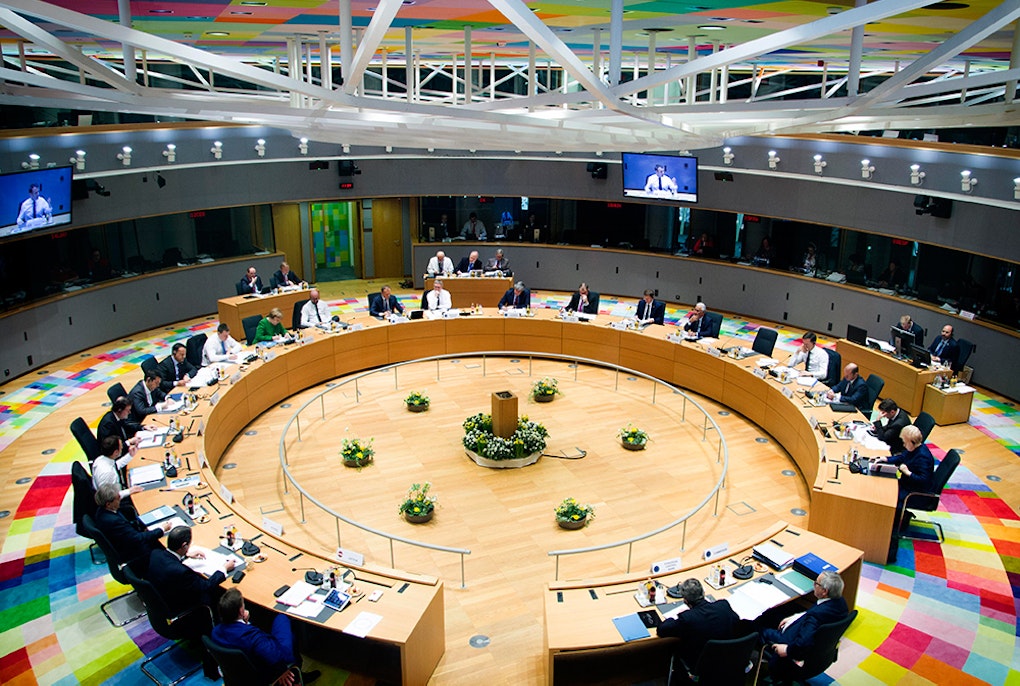
The Council of the European Union: what is it for?
 Alice Valdesalici
Alice Valdesalici
Australia is located at the antipodes of Europe, and this geographical distance is reflected also in the way questions and issues pertaining to the law and politics of the European Union (‘EU’) are perceived: as something quite exotic and distant, and certainly of less interest.
Quite unsurprisingly then, discussions of the upcoming EU parliamentary elections of May 2019 do not feature prominently in Australian televised or media debates: because the media is silent on the topic, most Australians seem to ignore the EU elections. Of course, this does not mean that Australians are not interested in European politics, but foreign politics is mostly understood through personalities (eg Berlusconi was very well known in Australia) or through distinct events. In other words, what gains most of the media’s attention are the political/constitutional debates within specific EU member states, at the domestic European level. For example, Brexit has monopolized most of the attention, which is hardly surprising considering the special bond that still links Australia with the United Kingdom (Australia is part of the Commonwealth and is a constitutional monarchy, the British monarch being the official Head of State). Other recent events that have elicited media attention are, for example, the protests of the gilets jaunes in France.
Academic institutions seem to mirror this global situation, although the reality is a bit more nuanced. Some Australian universities, such as Melbourne Law School or University of New South Wales, host research centres that are extensively engaged in comparative public law. However, even in these unique environments, most of the scholarly attention has revolved around specific issues at the EU domestic level (such as Brexit), or around global discussions on democratic backsliding in countries like Poland, Hungary and – to a certain extent – Turkey. More specific debates on EU law and policy are more likely to occur in research centres specializing in EU law and/or in courses on EU law, but both are difficult to find in this part of the world: this is different to what happens for example in North America, where it is not unusual to have research centres or courses on EU law. While in Australia there are individual academics or PhD candidates working on EU related questions, most big research centres, conferences or groups tend to be more Asia or US focussed, with EU regionalism playing only a secondary role.
Ironically, it can be argued that the extensive coverage of Brexit-related issues both by the media and by academics has certainly contributed – albeit indirectly – to an increased knowledge and awareness among Australians regarding EU related matters. Furthermore, this apparent lack of interest about EU politics might change in the future due to negotiations, which began in June 2018, to draw up an EU-Australian Free Trade Agreement. After all, as indicated on the website of the Department of Australian Foreign Affairs and Trade , ‘the EU is Australia’s second largest trading partner, third largest export destination, and second largest services market. The EU was Australia’s largest source of foreign investment in 2017.’
That being said, I expect that, as the EU election date approaches, major Australian newspapers (e.g. The Australian, the Australian Financial Review, etc.) and academics will provide sufficient analysis of the results. But for now, the EU elections have certainly not elicited much attention in this part of the world.
 | Erika Arban is a researcher in comparative federalism at the University of Melbourne and a lecturer at the University of Antwerp. When she is not running or playing the flute, Erika spends her free time writing academic papers, grading exams and traveling to conferences. You would easily recognize her as the loudest person at Carlton (Australian Football League) games. |
This content is licensed under a Creative Commons Attribution 4.0 International license.